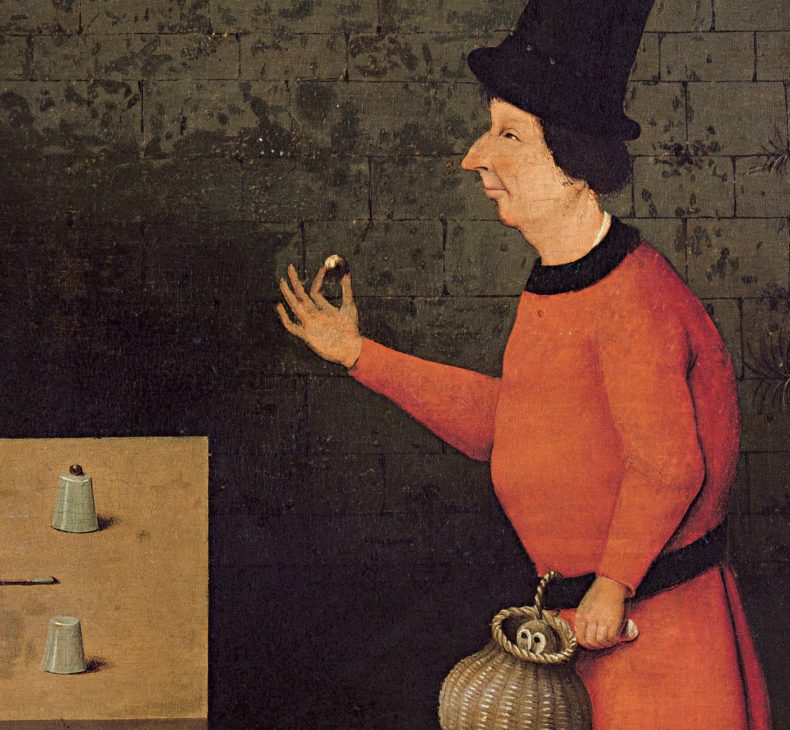 Early last week on Twitter, some National Security Agency posters showed up, reminding NSA employees to watch what they said.
Early last week on Twitter, some National Security Agency posters showed up, reminding NSA employees to watch what they said.
@AnnFinkbeiner: Do NSA people really need that much reminding? They’re not reminded, they run around singing like birds?
@father_kipz: To be honest, humans are social animals and easy to hack. The constant reminders probably do help a bit.
I have no idea who @father_kipz is and googling doesn’t help, so I don’t know his authority in these matters. Nevertheless:
@AnnFinkbeiner: Hackable humans. I like that.
@father_kipz: Hackers have a term for the process, social engineering. Basically what Kevin Mitnick was famous for.
@AnnFinkbeiner: Had to google Mitnick. And here I thought “social engineering” was just sort of overzealous city planning. Hoo boy, that stuff is NASTY.
Kevin Mitnick is a hacker whose methods are apparently based less on cleverness about computers than on his ability to scam people. From a post at Big Think: “By the age of 12, he was adept at “social engineering,” which is to human beings as hacking is to computers. You find their vulnerabilities – trust, mainly – and exploit them.”
“Vulnerable” comes from a Latin word that means “to maim, to wound.” So Mitnick’s kind of social engineer exploits the places at which other people can be wounded, in particular, their trust. Exploiting someone’s trust is as good a working definition of human evil as I’ve seen. But it’s neither surprising nor unusual, and I’m not talking about fudging on your taxes or lying to the competition or spying on bad guys. I’m talking about people who look you in the eye and lie and then say, “Well too bad, you trusted me.” If I were God, I’d consider a nice cleansing flood.
 Next day, different part of Twitter:
Next day, different part of Twitter:
@anamariecox: Once in the midst of a major depression, I was crying (I thought softly) to myself on the F train; it was crowded. Someone, as they got off, stuck a pack of tissues under my nose. That person kept me going another day. How has someone else that kept you going?
The replies were astounding, one after another, I don’t know how many.
@DawnMacc: I was living in Japan, feeling out of place, rode the same train everyday, a little girl always stared at me. One day as she got off at her stop, she tapped my arm, smiled and said “Have good day” Her mom said she thought I was sad and been practicing for weeks. It was everything
This is empathy, of course, and it uses the same skill and sensitivity to vulnerability that social engineers use, only to help people quickly and without recompense. It’s as good a working definition of human good as I’ve seen. So God can maybe hold off on the flood.
But also: what makes social engineers loathsome is not only that they exploit other people’s vulnerabilities, I think, but that they keep themselves personally invulnerable.
Two days earlier on Twitter:
@AnnaHolmes: Our centerpiece is the brutal, beautiful feature doc The Work, about a group of men undergoing a 4-day group therapy session in California State Prison, Sacramento. This is worth bookmarking and watching later
The Work is set in Folsom prison; outsiders have signed up for four days-worth of a support group with insiders. The outsiders were men who, as they explained to the group, had grown up on the streets, whose fathers were in prison, who were bored and liked the sensation of danger, whose lives seemed to be bullshit, who felt they were stuck. The insiders had committed violent crimes, were murderers with decades-long sentences; were members of the Crips, the Bloods, the Aryan Brotherhood; biker guys, Native Americans, Pacific Islanders, Hispanics, African-Americans; shaved heads, ear piercings, beads, bandannas across foreheads, tattoos over their arms, shoulders, chests, necks, faces; most of them were body builders; they’d be cast in the first round as the psychopathic bad guys who’d kill you on a dime.
Outsiders and insiders each talk about why they’ve signed up for the group. “I love adrenaline edges and in this place it’s hard to get to that fucking edge for me without it being a bad thing.” “I never grieved for my sister.” “I betrayed my mom.” “All I wanna do is see my baby boy.” “I could die and nobody would care and they’d bury me on the prison grounds, l’m ready to quit this shit.” “I’m tired of motherfuckers being hurt. I’m tired of the blood.” “For me it’s about the fatherless sons.”
They stand and close in tighter and tighter around the man who’s talking; mostly their reassurance is physical, with their bodies. The talking guy in the center starts crying ugly, falls into someone’s arms, drops to his knees, the circling guys lean against him and suddenly he starts hitting and kicking and trying to get up, “Goddammit! Goddammit!” then he falls to the floor, crying hopelessly like a baby, someone says, “I’m not going anywhere, we all got your back,” and another one says, “That’s good work. Naked man. Took a lotta fuckin’ balls.”
Or they sit facing in a circle, talking and suddenly somebody says the wrong thing, “You just fucking judged me you motherfucker, is that what you do?” “Was it untrue?” “Yeah, it’s untrue. Bitch.” “Did you just call me a bitch?” And the rest of the guys say, “Hold on, hold on,” and one guy says, “Look at me, Brian. Look at me.” Brian the bitch with his head still down starts screaming like an animal, howling, then folds up crying. They’re out of their chairs surrounding him in tight, seven awfully big guys, and Brian blows up, he’s trying to climb over their heads, “Get the fuck off me you mother fuckers,” screams that don’t sound human. And the guy gets even closer, “Open your eyes. Look at me. Keep your head up. Cry like a man, up here, with your chin up here,” and Brian stands up calmer, “Just stand up, just stand up and look at me. Stand up and hurt.”
The big guys are watching them. I’ve never seen expressions on men’s faces like these. No therapy talk, not just compassionate; they’re tender, gentle, and intensely, frighteningly direct, so careful with each other, faces so close they’re touching.
I have seen expressions on men’s faces like these, but they were in Renaissance paintings, witnesses to saints’ sufferings, bystanders at the crucifixion. In 17 years, 40 convicts have gone all the way through this program and been released. No one’s gone back to prison. A program graduate, Rick, says later, “When I became vulnerable, I started healing myself. When I became vulnerable, I started healing others. Vulnerability is crucial.”
_________
The documentary, The Work, is in the online magazine, The Topic, in a series devoted to fathers and sons. It’s hard to watch all the way through, I had to take breaks. The second picture up there could be a still from it.
Via Wikimedia: The Conjuror, by Hieronymus Bosch, detail; Deposition from the Cross, by Rogier van der Weyden, detail
One thought on “On Vulnerability”
Comments are closed.